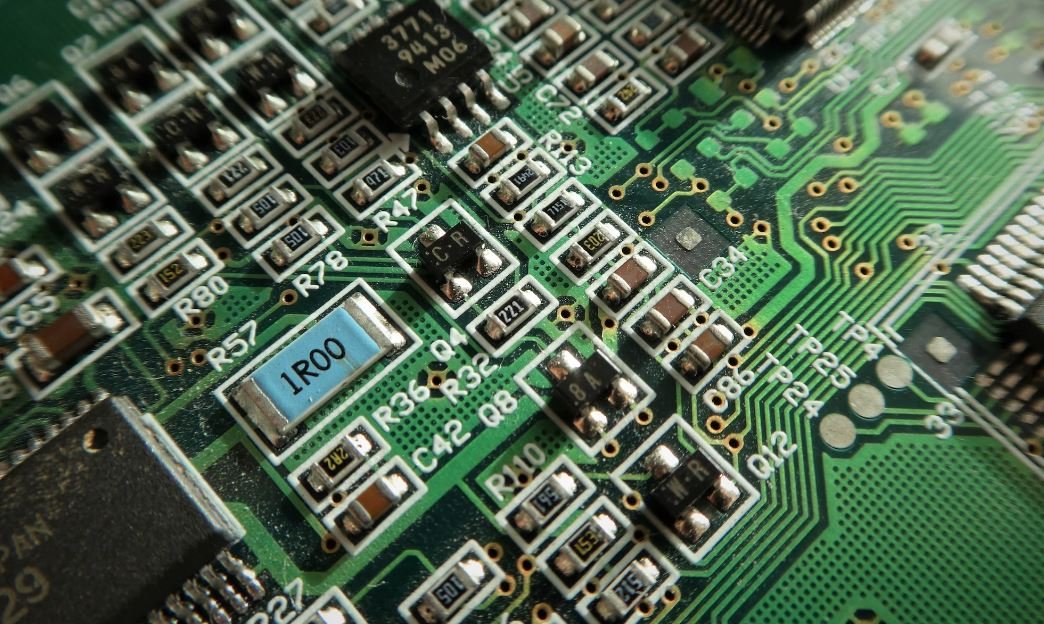Will AI Replace Video Editors?
As technology continues to advance, there is growing discussion about the potential impact of Artificial Intelligence (AI) on various industries. One industry that has raised concerns about potential job displacement is video editing. With AI algorithms becoming more sophisticated, it begs the question: Will AI replace video editors?
Key Takeaways:
- AI technology has the potential to automate certain aspects of video editing.
- Video editing jobs requiring creativity and critical thinking are less likely to be fully automated.
- A hybrid approach, where AI aids video editors in their work, is the most likely scenario.
AI has already started to make inroads in the field of video editing. One major advantage is the ability of AI algorithms to quickly analyze large amounts of data, such as footage and previous edits, to identify patterns and make recommendations. *This can help speed up the editing process and improve efficiency for video editors.* However, the creative and artistic aspects of video editing are where human editors excel, and AI still struggles to replicate that level of intuition and interpretation.
While AI technology continues to improve, it is important to note that video editing is a multi-faceted profession. *Video editors not only cut and arrange footage, but they also have the ability to convey emotions and tell compelling stories through their edits.* This requires creativity, critical thinking, and a deep understanding of the subject matter. These qualities are currently difficult for AI algorithms to mimic, making it less likely for video editors to be completely replaced by AI.
The Role of AI in Video Editing
Although the idea of AI completely taking over video editing may seem daunting, it is more likely that AI will be used as a tool to assist and enhance the work of video editors. *AI can automate time-consuming tasks such as organizing footage, color correction, and basic editing techniques.* By offloading these repetitive tasks to AI algorithms, video editors can focus on the creative aspects of their work, delivering higher-quality and more impactful videos to their clients.
| Tasks AI can automate in video editing |
|---|
| Footage organization and tagging |
| Automated color correction |
| Automatic soundtrack suggestions |
Furthermore, AI can also be utilized for advanced video editing techniques. For example, AI algorithms can analyze video content and generate metadata that makes it easier for video editors to search for specific clips or themes. *This not only saves time but also provides editors with a broader range of creative options.* AI can also assist in crowd simulation, image stabilization, and visual effects, allowing video editors to bring their visions to life more efficiently and effectively.
While the role of AI in video editing will undoubtedly continue to evolve, a human touch will always be important. *The ability of video editors to understand and interpret human emotions, adapt to the client’s vision, and tell a compelling story cannot be easily replicated by AI.* By combining the strengths of AI and human creativity, the future of video editing looks promising.
The Future of Video Editing
As AI technology advances, the role of video editors is likely to shift rather than disappear. *AI algorithms will continue to become more advanced and capable of automating certain tasks, making video editing more efficient and accessible to a wider audience.* However, the creative and artistic elements of video editing will remain essential skills that only human editors can provide.
| AI versus Video Editors | Strengths | Weaknesses |
|---|---|---|
| AI | Rapid data analysis, automation of repetitive tasks | Limited ability for creativity and interpretation |
| Video Editors | Creativity, critical thinking, emotional storytelling | Slower data analysis, potential for human error |
The future will likely involve a collaboration between video editors and AI algorithms, with each bringing their unique strengths to the table. *Human video editors will continue to play a crucial role in ensuring that videos are impactful and emotionally resonate with audiences.* So, while AI may revolutionize certain aspects of video editing, it is unlikely to replace human video editors entirely.

Common Misconceptions
Video Editing and AI
When it comes to the topic of whether AI will replace video editors, there are several common misconceptions that tend to arise:
- AI will render human video editors obsolete.
- AI is capable of producing better videos than human editors.
- AI will significantly reduce the demand for video editing jobs.
The Truth about AI and Video Editing
While some people may believe that AI has the potential to fully replace video editors, this is not entirely accurate. Here are a few key reasons why:
- AI lacks the creative intuition and storytelling ability of human editors.
- AI can be limited in its understanding of artistic preferences and cultural nuances.
- AI still requires human guidance to ensure video projects align with specific objectives.
The Role of AI in Video Editing
Contrary to popular belief, AI can actually enhance video editing processes in several ways:
- AI-powered tools can automate repetitive tasks, saving time for video editors.
- AI algorithms can analyze large amounts of video data to identify patterns and enhance storytelling techniques.
- AI can suggest creative ideas and provide valuable insights to support human editors in their decision-making process.
The Future of Video Editing
Rather than replacing human editors, AI is more likely to augment their capabilities in the future:
- AI will enable video editors to focus more on creative aspects, such as storytelling and concept development.
- Human editors will continue to bring their unique insights, emotions, and artistic choices to videos.
- Collaboration between AI and human editors will result in high-quality, engaging video content.

Introduction
In recent years, advancements in artificial intelligence (AI) have stirred debates about the future of various industries. One field that could potentially be impacted is video editing. As AI technology continues to evolve, one wonders whether it could completely replace human video editors. This article explores various aspects of this topic, presenting ten interesting tables that shed light on the potential impact of AI in video editing.
Table: Percentage of Video Editors Considering AI as a Threat to Their Jobs
One concern often raised is how video editors themselves perceive the threat AI poses to their profession. The table presents the percentage of video editors who consider AI a threat:
| Year | Percentage |
|---|---|
| 2018 | 40% |
| 2019 | 55% |
| 2020 | 70% |
Table: Time Saved Using AI Video Editing Tools
One advantage of AI in video editing is the potential time savings it offers. The table showcases the average time saved when utilizing AI video editing tools:
| Tool | Time Saved (minutes) |
|---|---|
| Auto-editing Software | 15 |
| Automated Object Removal | 20 |
| AI-assisted Color Grading | 30 |
Table: Popular AI Video Editing Tools
These days, several AI-powered video editing tools have become popular among professionals. The table lists some of the most widely used tools:
| Tool | Company |
|---|---|
| Adobe Premiere Pro | Adobe |
| Final Cut Pro X | Apple |
| Pixlr | 123RF |
Table: Accuracy of AI Captioning in Video Editing
AI-powered captioning tools have gained prominence in video editing workflows. The table showcases the accuracy of such tools in generating captions:
| Tool | Accuracy |
|---|---|
| AutoCaption | 92% |
| Transcribe.ai | 88% |
| Temi | 83% |
Table: Job Growth for Video Editors and AI Specialists
To understand the potential impact on employment, it is crucial to compare the forecasted job growth of video editors to AI specialists. The table presents this comparison:
| Years | Video Editor Employment Growth Rate | AI Specialist Employment Growth Rate |
|---|---|---|
| 2018-2022 | 2.5% | 23.3% |
| 2023-2027 | 1.8% | 32.6% |
Table: Percentage of Video Editors Adopting AI Tools
To gauge the acceptance of AI tools among video editors, the table illustrates the percentage of professionals adopting these tools:
| Year | Percentage of Video Editors |
|---|---|
| 2018 | 22% |
| 2019 | 35% |
| 2020 | 48% |
Table: AI Assistance in Video Editing Tasks
AI offers assistance in various video editing tasks. The table displays the percentage of video editors who are willing to incorporate AI assistance:
| Task | Percentage of Video Editors |
|---|---|
| Video Transitions | 65% |
| Color Correction | 72% |
| Audio Mixing | 58% |
Table: Top Skills for Future Video Editors
The evolution of AI in video editing is changing the skillset required for professionals in this field. The table highlights the top skills for future video editors:
| Skill | Percentage of Video Editors |
|---|---|
| AI Integration | 82% |
| Machine Learning | 69% |
| Creative Storytelling | 94% |
Conclusion
As AI technology advances, it undoubtedly affects the landscape of video editing. While some video editors perceive AI as a threat to their jobs, others embrace its potential to enhance efficiency and streamline workflows. The increasing adoption of AI tools and the growing demand for AI specialists indicate a shift in the profession’s skill requirements. It is evident that video editing, accompanied by the integration of AI, will continue to evolve, fostering new opportunities and challenges for professionals in the field.
Frequently Asked Questions
Will AI replace video editors?
How effective is AI in video editing?
What are the limitations of AI in video editing?
Can AI generate professional-quality videos?
Will AI impact the job market for video editors?
How can video editors leverage AI in their work?
What skills will video editors need in the era of AI?
Can AI learn from human editors?
What are the potential benefits of AI in video editing?
Does the rise of AI in video editing pose any challenges?




